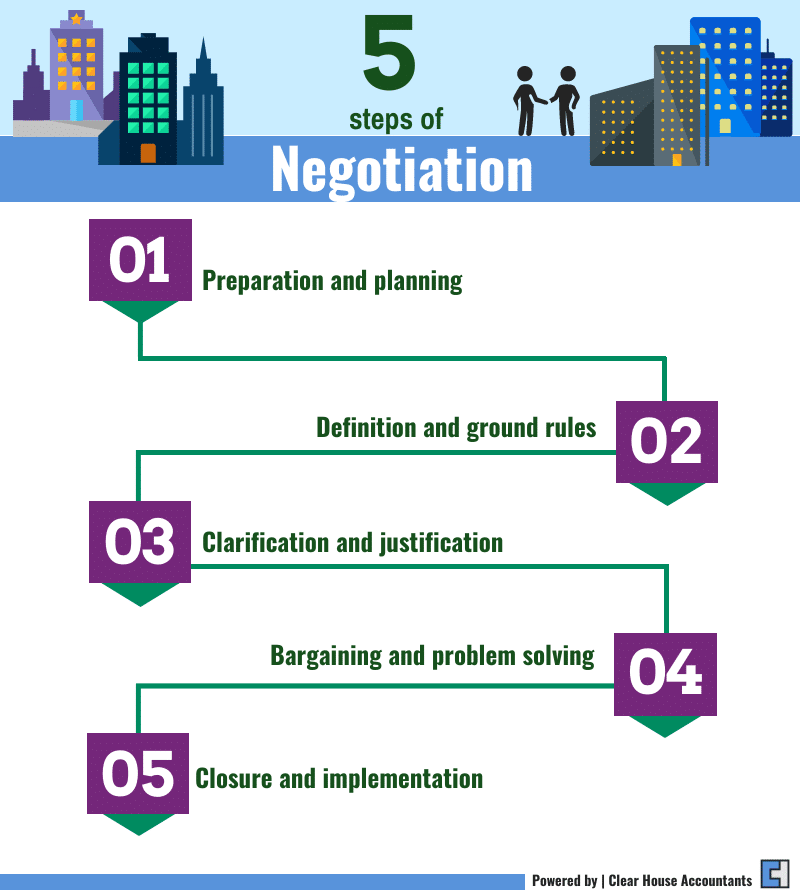Performing Successful Contract Negotiations
Negotiating a business contract can be challenging as well as inspiring. The prospect of embarking on a new, financially profitable project can give one quite a head rush. Business success is highly dependent on successful business contract negotiation. Businesses in the past have seen legal complications because of incorrectly negotiated business contracts.
A business contract negotiation involves complex legal terms and loopholes. Negotiators may fail to secure an infallible agreement and end up short-selling themselves.
You might be in need of contracts if you are a contractor and want to find contracting jobs or a new customer. Plan to appoint a contractor accountant if you are looking to do a contract job; they can help you set up correctly, advise on IR-35 implications, and any financial pointers that might need to be amended in the contract, such as VAT charges, payment terms, etc. This article will be a quick guide on some steps to take before and during contract negotiation.
Be Mindful of Confidentiality
It is better to identify the importance of confidentiality prior to starting a negotiation process. If the negotiation demands some kind of privacy, Make sure to sign an agreement of confidentiality before providing sensitive information. The contract of confidentiality is usually called a non-disclosure agreement (NDA), an NDA template can be found on our growth portal.
A confidentiality signed document provides a clear, binding obligation that offers legal, practical and evident benefits to contract negotiations. This agreement gives a clear image of what, when, and how a piece of information should be disclosed. It may help sustain a later claim against any non-agreed disclosure.
A non-disclosure agreement must define the confidentiality of all the information revealed in contract negotiation. Furthermore, it must establish that the provided information is only for stated purposes and will not be disclosed to anyone else. The NDA should also state the condition of erasure or return of all information in case of an unsuccessful negotiation.
It is vital to consult legal advisors even before providing the opposite party with any sensitive information. It is essential to understand any legal obligation to avoid any future complications. Providing certain information might be illegal, like the personal data of customers and employees.
Take Your Time while Negotiating
As a contract negotiator, You must take your time to configure a successful negotiation strategy to omit any possible errors. It takes time to understand contracts and their legal complexities and conditions thoroughly. The right counterparty will give you a specified amount of time, enough for you to scrutinise it. To have a full grasp of the content a contract entails is vital for further negotiation. Reviewing in detail will help you know what you will agree to, without missing any details. Ask your lawyer to look at concerning clauses; your accountant can investigate any financial obligations or requirements.

Draft an extensive Head of Terms
It is crucial to draft an extensive head of terms to avoid any miscommunication and misunderstanding. Head of terms document refers to setting out the core conditions that a party expects to be included in the final contract. This document is also called a letter of intent, term sheet, or memorandum of understanding. The head of terms for simple, low-value agreements may be sent in emails rather than formulating an official document. However, for a more substantial settlement, your legal attorney must draft a formal head of terms.
An extensive draft involves details regarding confidentiality, privacy, and provisions regarding an early withdrawal from the negotiation. Drafting a ‘head of terms’ allows both or multiple parties to give a focal foundation for further negotiation. Moreover, it provides clarity and opportunity to avoid any potential miscommunications that can otherwise occur via an informal way of communication.
Seek Professional Assistance
As much as you are well-versed in the business world, you might want to consider getting some third-party help. Lawyers and contract accountants play an important role in bagging a successful contract negotiation.
A solicitor will help you understand the complex legal jargons used in the contract and their meanings to you. Legal professional assistance also helps you to draft any changes in terms that you feel might be disadvantageous to you.
It is also possible to take advice from more experienced individuals in your field since they were also once in your shoes. The experts in the industry might provide you with a more cost-friendly option. It is far better to spend some money upfront and cover yourself rather than taking a risk. Our partnership with Sparqa Legal was done for the sole purpose of providing a client with a starting point for all their legal concerns. A bad deal will cost you more in order to fix the damage, so why not start right?
Hiring a legal attorney and pursuing legal matters in case of any breach of contract may cost you a lot. We suggest you seek professional business consultation to estimate the financial obligations for breaking an agreement. The business consultant might help you create a scenario plan if a payment is ever required. The free legal helpline offered by Clear House Accountants can help you get free advice about legal matters which you might be concerned about.
Believe in Loss Aversion
Loss Aversion, as coined by Danial Kahneman and Amos Tversky, assumes that people value losses more than they value gains. It is important to look for potential losses rather than possible gains when negotiating a contract. Since you are in this for business, you also need to make a decent profit from whatever deal you are negotiating.
You could contact an accounting firm to help you calculate the ratio of what you stand to gain and lose. If not, you could draft the head terms for any changes you want to make to benefit all parties involved. In calculating your gain, you should know how much your time and skill is worth.
It is important to set out the losses of the counterparty in the negotiation proposal to make them consider the deal. Furthermore, look at what the other party has to gain from it and define the benefits they may gain after the agreement. A business accountant can help you break down these values. Always make sure your payment terms, penalties for non-payment and other specific matters relating to money are covered to avoid future arguments.
Video: 7 Tips & Tactics When Negotiating A Business Contract
watch the video in order to discover more about 7 tips when negotiating a business contract
Make Reasonable Contract Negotiation
It is crucial to be reasonable in your demands while negotiating a contract. You must consider all parties involved as much as you want to make a profit. Do not be avaricious, or you might miss an excellent opportunity. Make sure your requests are within the capabilities of the other party and are not burdening them financially or morally.
Some examples of unreasonable demands may include not being considerate of the counterparty’s safety. Furthermore, if you expect a much larger cut than what you deserve is unfair to the counterparty. If you are demanding unreasonable working hours, putting unreasonable time limits, asking for tasks outside of their field of expertise; it might put off the other party from working with you. Read quick tips to get you started when negotiating a business contract.
Communication is Vital
Communication is an essential aspect to bag a successful business negotiation and agreement. It is far better to ask questions rather than stay ignorant of anything ambiguous. Make that call, send that email, and get full explanations on all your questions, get that accountant advice, and review key points with your accountants to avoid financial blind spots. Something else also worth mentioning is that this will not be the only contract to come your way. It is better to walk out of a deal if the attitude of counterparties is suspicious.
Clear House Accountants are specialist Accountants in London who have experience working with businesses of all shapes and sizes. We advise businesses and assist them in different situations as trusted business partners.









































































